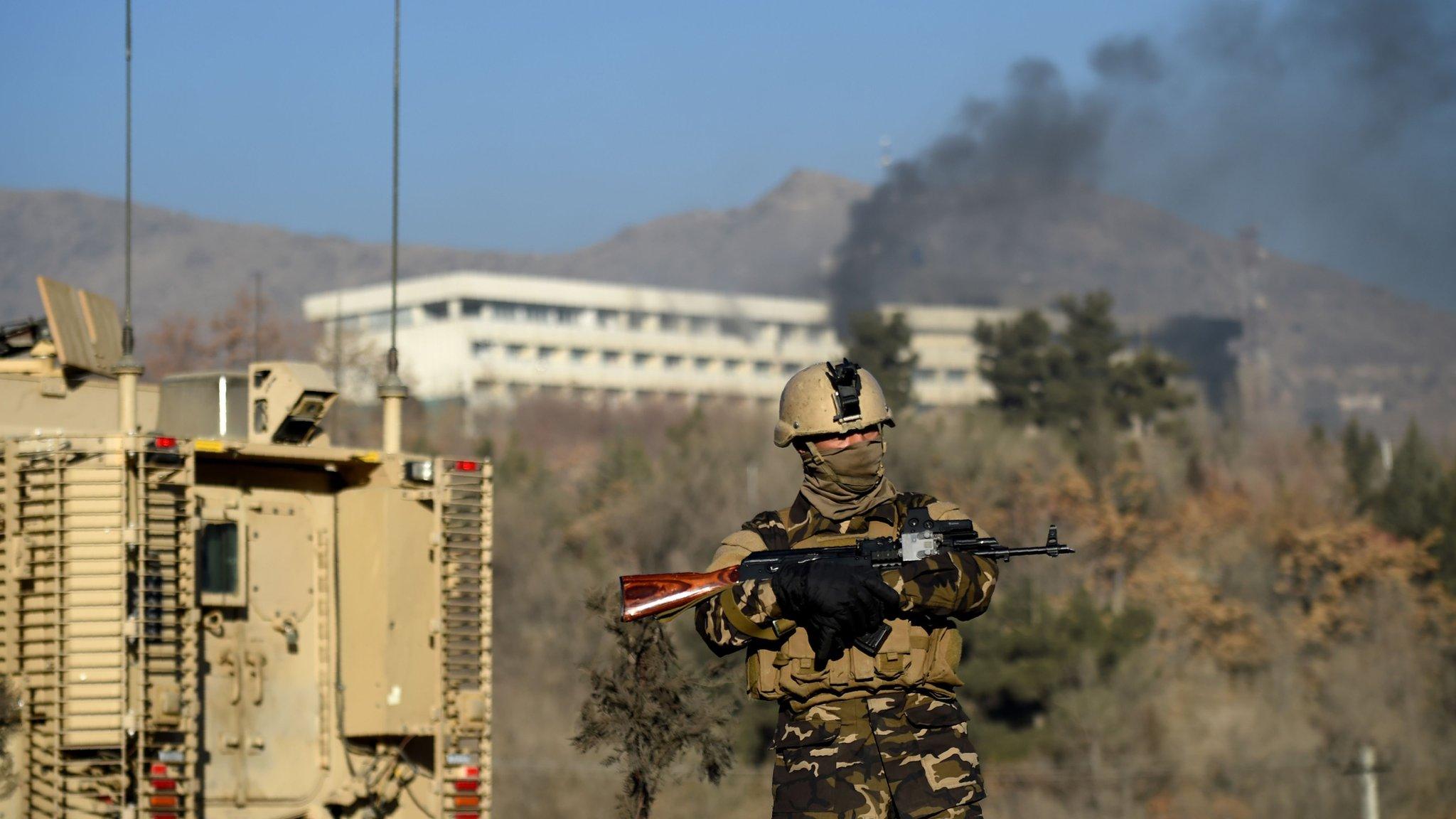US-Taliban talks: A prelude to all-encompassing Afghan deal?
- Published
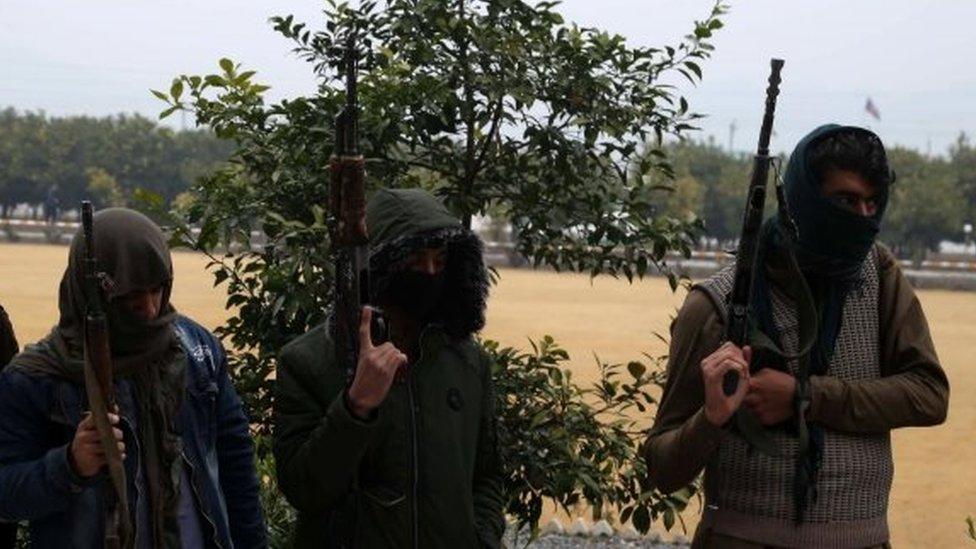
Will the Taliban honour a possible deal with the US?
All the signs emerging from the annual Security Conference in Munich are that the US and the Taliban are perhaps just days away from announcing an agreement that could pave the way for peace talks between the Afghan parties themselves and the withdrawal of US troops from the country.
Washington's longest ever war could be coming to an end, and President Donald Trump - in a crucial re-election battle - may be able to make good on his promise to bring US troops home.
The stakes for the Trump administration and for the US are high.
Arguably the stakes for Afghanistan are even higher.
The very political future of the country is at stake. What system of government will ultimately triumph?
But before we get to any final settlement, many questions are already being raised.
Indeed - in a fundamental sense - what is actually being talked about here? Is this an all-encompassing peace deal for Afghanistan?
Or is this simply an agreement to allow the Americans to head for the exit?
It could be both. But equally it might be the latter rather than the former.
So far details of what has been decided are limited. But agreement seems tantalisingly close.
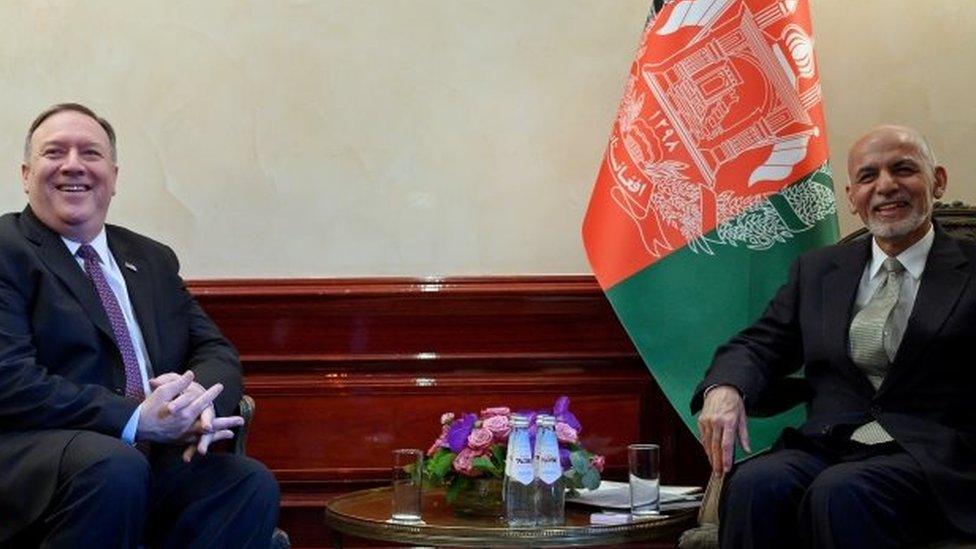
Some details of a possible deal were revealed after the Pompeo-Ghani talks in Munich
In the margins of the Munich conference, US Secretary of State Mike Pompeo met Afghan President Ashraf Ghani.
Subsequently, a senior US official set out some of the deal. A seven-day truce agreement between the US and the Taliban in Afghanistan will come into effect very soon and could lead to withdrawals of American troops.
The official said the initial agreement on a reduction in violence would be followed by all-Afghan peace talks within 10 days and would cover the whole country.
US Defence Secretary Mark Esper later said that "a significant part of our operations" in Afghanistan would be suspended, but added that the "clock has not yet begun" and that further consultations were needed to set the date.
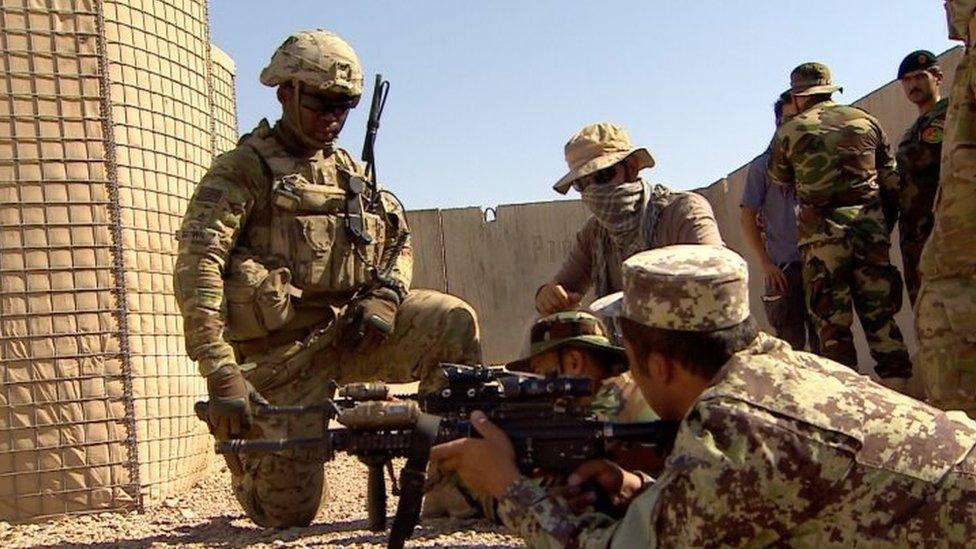
US troops have been involved in training of the Afghan armed forces
That is an ambitious opening gambit. The talks appear to have been extremely detailed. Violence against both US and Afghan forces is included, and US officials say that the specifics of what defines violence are down on paper.
There would be a communications channel between the US and the Taliban; an acceptance that there may be violence from other sources and each and every incident will need to be clarified.
Indeed, there are monitoring and verification provisions throughout.
In the longer term the Taliban is said to have agreed not to host, train or fundraise for international terrorists in the areas they control.
The talks between the Taliban and the Afghan government will begin with the discussion of a "permanent and comprehensive" ceasefire.
Meet Fatima and Fiza, some of the women removing landmines in Afghanistan

So far so good - but there are hints here already as to what might go wrong.
It is still not entirely clear exactly who the US is talking to and to what extent they represent or speak for all Taliban elements.
There are all sorts of other armed groups in Afghanistan eager to stir up trouble.
Can any peace process really be insulated from them?
It's not clear yet where Pakistan stands in all of this or the extent to which will be wider regional framing for any settlement.
One thing we do not know yet is the exact pace or sequencing of any US troop withdrawal.
Would any residual US forces remain? US officials appear to be hoping that such a force would not be required.
But perhaps the biggest question outstanding is can the Taliban really be trusted to deliver on any deal?
And once they have the US on its way, will they honour any broader peace agreement within Afghanistan itself ?
What US sanction might there be if they don't?
Tens of thousands of Afghan soldiers have been killed and injured. This 2019 video tells their story.

But we are getting well ahead of events here. What the Americans are clearly hoping for is some quick and early sign that the Taliban are serious.
A week's cessation of violence is the route into the process. Many US analysts fear that President Trump, for his own political reasons, is rushing for the exit.
Few Americans will be sorry that the longest-lasting campaign of the "forever wars" may at long last have a chance of ending.
But one should not be sanguine about what might follow.
Writing earlier this week, veteran US defence expert Tony Cordesman raised concerns that the "peace" being sought by President Trump might rather be the "Vietnamisation" of a US withdrawal.
There are many warning signs," he noted, "that this peace effort may actually be an attempt to provide the same kind of political cover for a US withdrawal as the peace settlement the US negotiated in Vietnam."
- Published13 February 2020
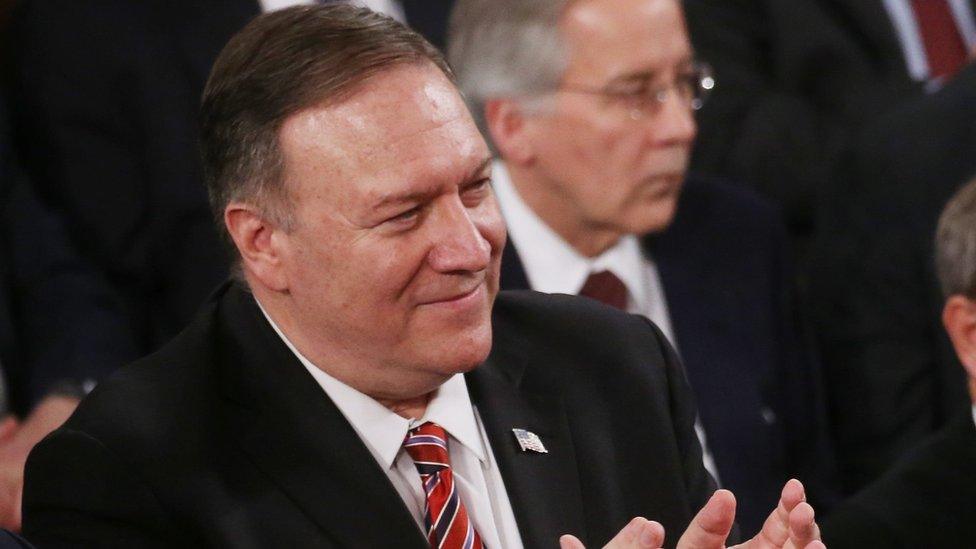
- Published7 February 2020
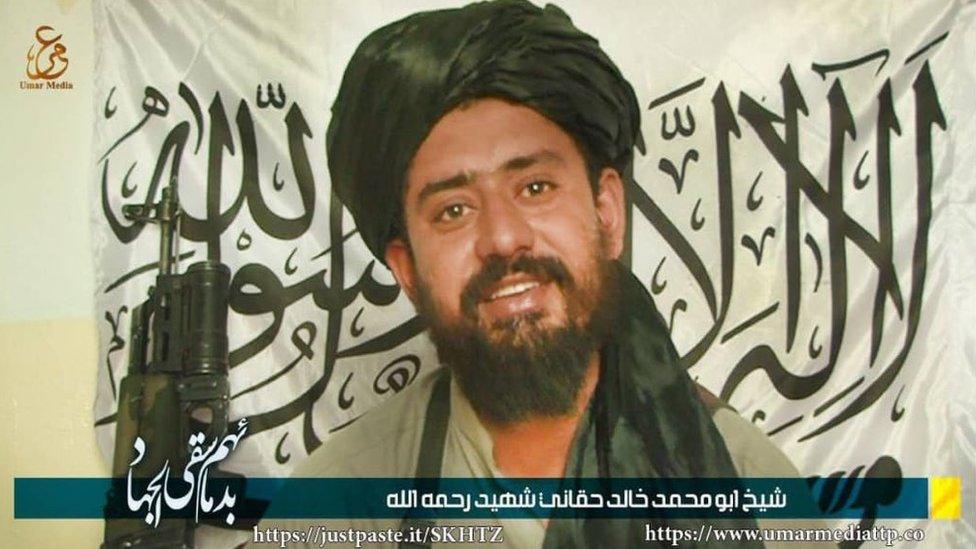
- Published21 January 2019
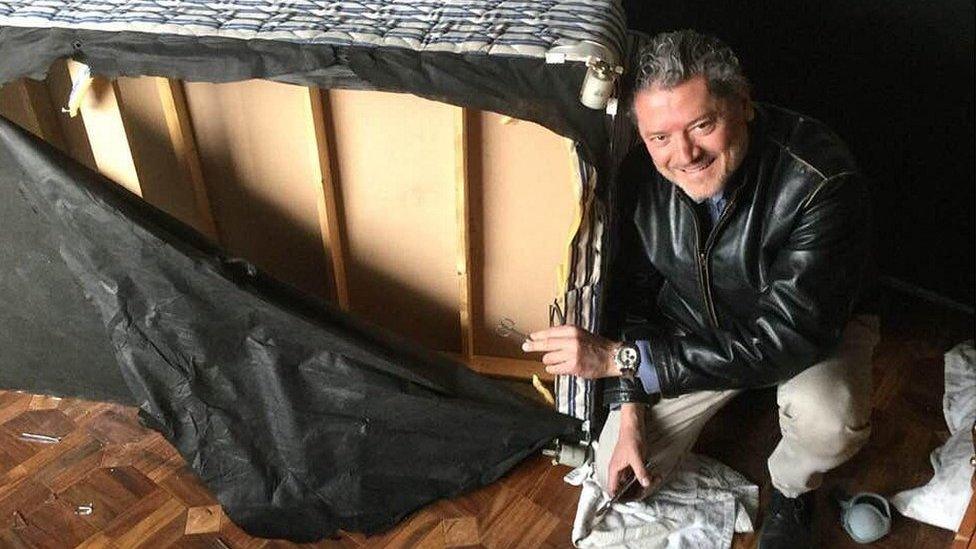
- Published17 December 2014

- Published29 June 2011

- Published12 November 2013

- Published22 January 2018
